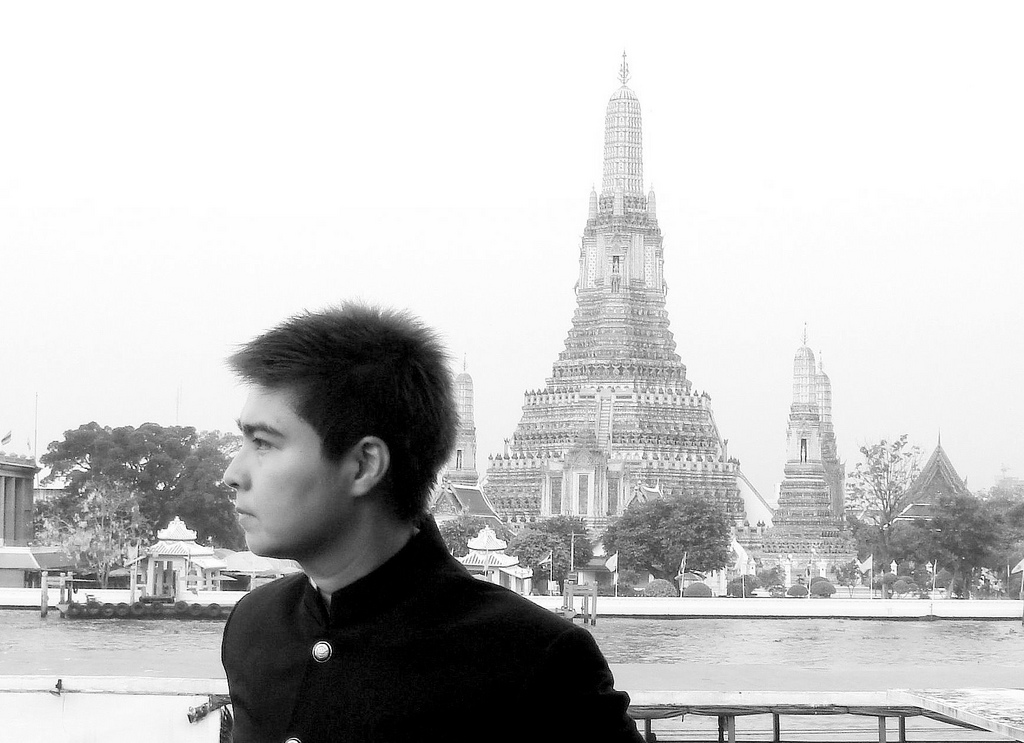As appeared in Bangkok Post Real.Time, September 5th, 2008
Chaotic Living
Even without extra chaos brought to us now and then by the wind of political nature, we human beings already find ourselves in one type of chaos or another.
Whether we are a homemaker, a billion-dollar dealmaker, or a combination of both, every single day of our life brings with it an undeniable possibility that we might run into something chaotic.
Not a New Phenomenon
It is easy to be mistaken that our daily chaos is the result of hectic, contemporary lifestyle of people belonging to post-modern society. But if we carefully examine people’s life throughout history, we will find that things are not that much different between a 21st-century businessman and a 17th century busy samurai. Yes, samurai.
One does not need to be a history buff to come across the legends of Japan’s feudal warriors. Until today, they are still being immortalized by countless films, books, TV series, manga comics, anime, games, re-enactment, martial arts, you name it.
The Samurai’s True Appeal
But the most interesting point is the samurai’s true appeal. For what truly made those feudal heroes stand out was not their martial prowess itself, but their ability to remain calm, cool and collected in any given situation.
In other words, these feudal warriors knew a thing or two about how to remain calm amidst chaos.
Let us step back in time, then, to see what we can learn from the samurai.
To Overcome Suffering, the Samurai Adopted Zen
Amidst the constant skirmishes that came with the first establishment of a shogunate in the 12th century, it is not difficult to imagine the samurai’s plight. It is precisely because of this reason that the warrior elites began to adopt Zen. The warrior needed something to help make their physical and mental suffering bearable.
And it must have worked, for in subsequent periods, Zen has spread from the power elites to warriors in general, eventually made its way to the public.
Zen is all about mind-training. Zen master D.T. Suzuki once said that when the unconscious is tapped, it rises above individual limitations. Suzuki called these powers superhuman and recognized that it work wonders.
The Mindful Samurai Found Wisdom
The core of Zen is mindfulness practice. Mindfulness is the practice whereby one is intentionally aware of what one perceives through the six perceiving organs (the mind being the sixth) in the present moment, non-judgmentally. And if the mind happens to concoct up thoughts or emotions upon that perceiving moment as it usually does, one simply takes note of it and let go.
Mindfulness is applied to both bodily actions and the mind's own thoughts and feelings. In Buddhism, mindfulness is prerequisite to insight and wisdom. Achieving this wisdom is a transforming experience, propelling one to lead a purpose-driven life.
Through their continuing effort of practicing mindfulness in every waking moment, the feudal samurai have grasped the true nature of things and become liberated. It is this very liberation that gave them peace of mind at all time, even in the face of death, let alone daily chaos.
Learning from the Peacetime Samurai
Contrary to conventional wisdom, samurai is not all about fighting. Take the Tokugawa Period (1600-1868), for example. It was the period when Japan first united as a country for the first time and was enjoying an unprecedented peace.
Basically, the samurai have basically become civil servants, educators and social builders in general. Arguably, their experience should be most applicable to us non-warriors. What can we learn from them, then?
Pick a Favorite Activity, then Apply Mindfulness
In a manual to train young samurai during the Tokugawa Period, Budo Shoshinshu, the author Daidoji Yuzan offered two types of advice. The first is to be mindful in everything one thinks, says and does.
But Yuzan must have realized that this is easier to say than to do. Because he included a second, complementary suggestion—engage your body and mind at all time with activities that are conducive to mindfulness cultivation.
His choice of activities range from the typical warrior’s pastime—martial arts--, to a more culturally refined ones: tea ceremony and calligraphy.
So, go ahead, pick your own favorite pastime and apply constant mindfulness to it. One you get the hang of it, you can move on to a more challenging task of applying mindfulness into every chore you have to do. The first surprise you might find is that, with mindfulness, suddenly what you normally dread or find it boring does not seem to be so bad.
Be a Samurai At All Time
The most challenging goal of it all is to do like Yuzan suggested, applying mindfulness in everything you think, say and do. It may feel daunting at first. But, like they say, a journey of a thousand miles begins with the first step, doesn’t it?
Besides, the reward is very tempting. By being constantly on guard of your body and mind, you are on your way to be one of those legendary samurai. Come rain or shine, or even chaos, for that matter, your mind will be calm. With that extraordinarily composure, anything is possible, going down in history included.








No comments:
Post a Comment